Related Research Articles

Benjamin Banneker was an American naturalist, mathematician, astronomer and almanac author. A landowner, he also worked as a surveyor and farmer.

Carter Godwin Woodson was an American historian, author, journalist, and the founder of the Association for the Study of African American Life and History (ASALH). He was one of the first scholars to study the history of the African diaspora, including African-American history. A founder of The Journal of Negro History in 1916, Woodson has been called the "father of black history." In February 1926, he launched the celebration of "Negro History Week," the precursor of Black History Month. Woodson was an important figure to the movement of Afrocentrism, due to his perspective of placing people of African descent at the center of the study of history and the human experience.
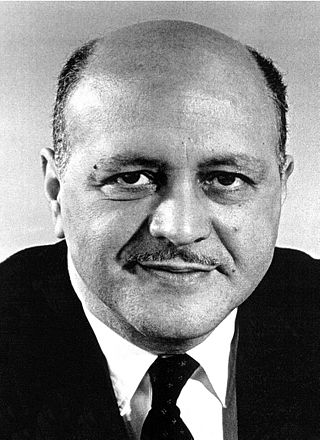
Robert Clifton Weaver was an American economist, academic, and political administrator who served as the first United States Secretary of Housing and Urban Development from 1966 to 1968, when the department was newly established by President Lyndon B. Johnson. Weaver was the first African American to be appointed to a US Cabinet-level position.

Sadie Tanner Mossell Alexander was a pioneering Black professional and civil rights activist of the early-to-mid-20th century. In 1921, Mossell Alexander was the second African-American woman to receive a Ph.D. and the first one to receive one in economics in the United States. In 1927, she was first Black woman to receive a law degree from the University of Pennsylvania Law School and went on to become the first Black woman to practice law in the state. She was also the first national president of Delta Sigma Theta sorority, serving from 1919 to 1923.
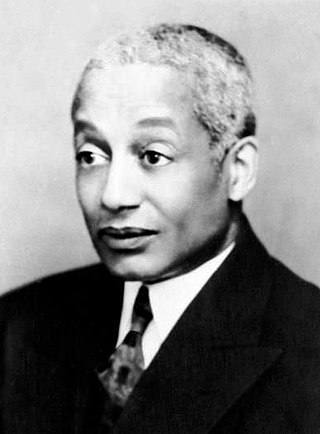
Alain LeRoy Locke was an American writer, philosopher, and educator. Distinguished in 1907 as the first African American Rhodes Scholar, Locke became known as the philosophical architect—the acknowledged "Dean"—of the Harlem Renaissance. He is frequently included in listings of influential African Americans. On March 19, 1968, the Rev. Dr. Martin Luther King Jr. proclaimed: "We're going to let our children know that the only philosophers that lived were not Plato and Aristotle, but W. E. B. Du Bois and Alain Locke came through the universe."
Arthur Huff Fauset was an American civil rights activist, anthropologist, folklorist, and educator. Born in Flemington, New Jersey, he grew up in Philadelphia, where he attended Central High School.
Jackson Davis was a principal, education official, and education reformer from Virginia during the Jim Crow era of segregation. He was involved in supervising education programs for African Americans and promoted well maintained manual labor colleges for them. He did not express any opposition to segregation. He took photographs and documented conditions at some of the schools serving African Americans and Native Americans in the southern United States, especially in rural areas. He was also involved with philanthropic organizations, traveled to Africa twice, and was part of a colonization society.

Allan Randall Freelon Sr., a native of Philadelphia, US, was an African American artist, educator and civil rights activist. He is best known as an African American Impressionist-style painter during the time of the Harlem Renaissance and as the first African American to be appointed art supervisor of the Philadelphia School District.
Constance Elaine Clayton was an American educator and civic leader. From 1982 to 1993, she was the Superintendent of the School District of Philadelphia. Clayton held the distinction of being both the first woman and the first African American to serve as Superintendent of Schools in Philadelphia. In 1992, the University of Pennsylvania Graduate School of Education established the Constance E. Clayton Professorship, the first professorship to be established in the name of an African American woman at an Ivy League institution and the second such professorship in the United States. Clayton was known for her "forceful persona" and "no-nonsense" approach and for her advocacy for children.
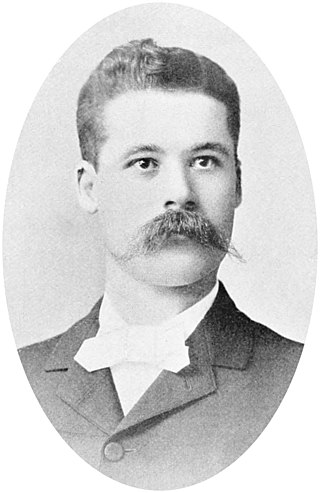
Arthur Rusmiselle Miller Spaid was an American educator, school administrator, lecturer, and writer. He served as principal of Alexis I. duPont High School (1894–1903) in Wilmington, Delaware, superintendent of New Castle County Public Schools (1903–1913) in Delaware, superintendent of Dorchester County Public Schools (1913–1917) in Maryland, and Delaware State commissioner of Education (1917–1921).
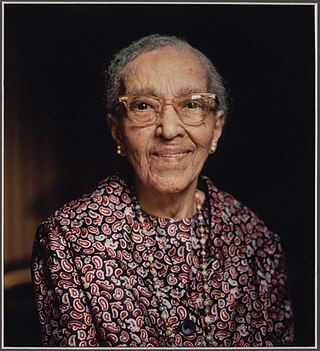
Bazoline Estelle Usher was an American educator known for her work in the Atlanta Public Schools. As director of education for African-American children in the district prior to integration, she was the first African American to have an office at Atlanta City Hall. She founded the first Girl Scout troop for African-American girls in Atlanta in 1943. Her career as an educator lasted over 50 years, over 40 of which were in the Atlanta schools. A school in Atlanta is named for her, and in 2014 she was posthumously named a Georgia Woman of Achievement.

Edward H. Morris was an American lawyer and state legislator in Illinois.
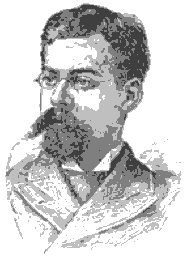
John Stephens Durham (1861–1919) was a teacher, journalist, author, attorney, civil engineer, and diplomat who served as United States Minister Resident to Haiti. He was African-American. He also served in Cuba where he established a law practice and had a sugar plantation.

James McHenry Jones was an American educator, school administrator, businessperson, and minister. Jones was the third principal of the West Virginia Colored Institute from 1898 until 1909 and is considered by West Virginia State as the institution's third president.

Harry Jheopart Capehart Sr. was an American lawyer, politician, and businessperson in the U.S. state of West Virginia. Capehart served as a member of the West Virginia House of Delegates, representing McDowell County for three consecutive terms, from 1919 to 1925. He also served as an assessor, city councilperson, and city attorney for Keystone, West Virginia.
John Baptist LaFargue was an American educator, school founder, principal, newspaper publisher, and editor in Louisiana.

Samuel Joseph Brown Jr. (1907–1994) was a watercolorist, printmaker, and educator. He was the first African-American artist hired to produce work for the Public Works of Art Project, a precursor to the Work Progress Administration's Federal Art Project. Brown often depicted the lives of African Americans in his paintings. He worked primarily in watercolor and oils, and he produced portraits, landscapes and prints.
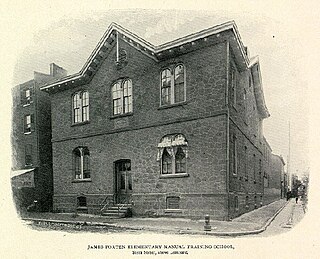
James Forten School (1822–?), originally known as Mary Steet School then Lombard Street Colored School and later Bird School or Mr. Bird's School, was the first public school for African Americans in Philadelphia, Pennsylvania.
Newbold High School was a racially segregated public high school for African American students active from 1952 until 1968, and located in Lincolnton, Lincoln County, North Carolina.
Russell "Rex" Gordon Goreleigh was an African American painter, printmaker, and arts educator. Goreleigh taught arts classes for the Works Progress Administration, and was active in the arts communities of Chicago, New York City, and Princeton, New Jersey. Much of his work depicts the African American experience.
References
- ↑ "The Week's Census". Jet . Johnson Publishing Company. January 23, 1958. p. 29 – via Google Books.
- ↑ "Homepage". Tanner Duckrey School.
- ↑ Skelcher, Bradley (November 15, 2000). Delaware State University. Arcadia Publishing. p. 102. ISBN 978-0-7385-0597-8 – via Google Books.
- ↑ Saunders, John A. (April 15, 1964). "100 Years After Emancipation: History of the Philadelphia Negro, 1787 to 1963". Free African Society – via Google Books.[ page needed ]
- 1 2 Nelson, H. Viscount (April 15, 1969). "Race and Class Consciousness of Philadelphia Negroes". University of Pennsylvania. p. 177 – via Google Books.
- ↑ "Race Relations: 1943-1944". Negro University Press. April 15, 1969 – via Google Books.[ page needed ]
- ↑ "Race Relations: A Monthly Summary of Events and Trends". Fisk University. April 15, 1943 – via Google Books.[ page needed ]